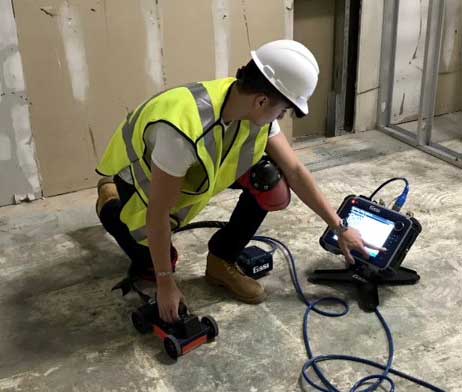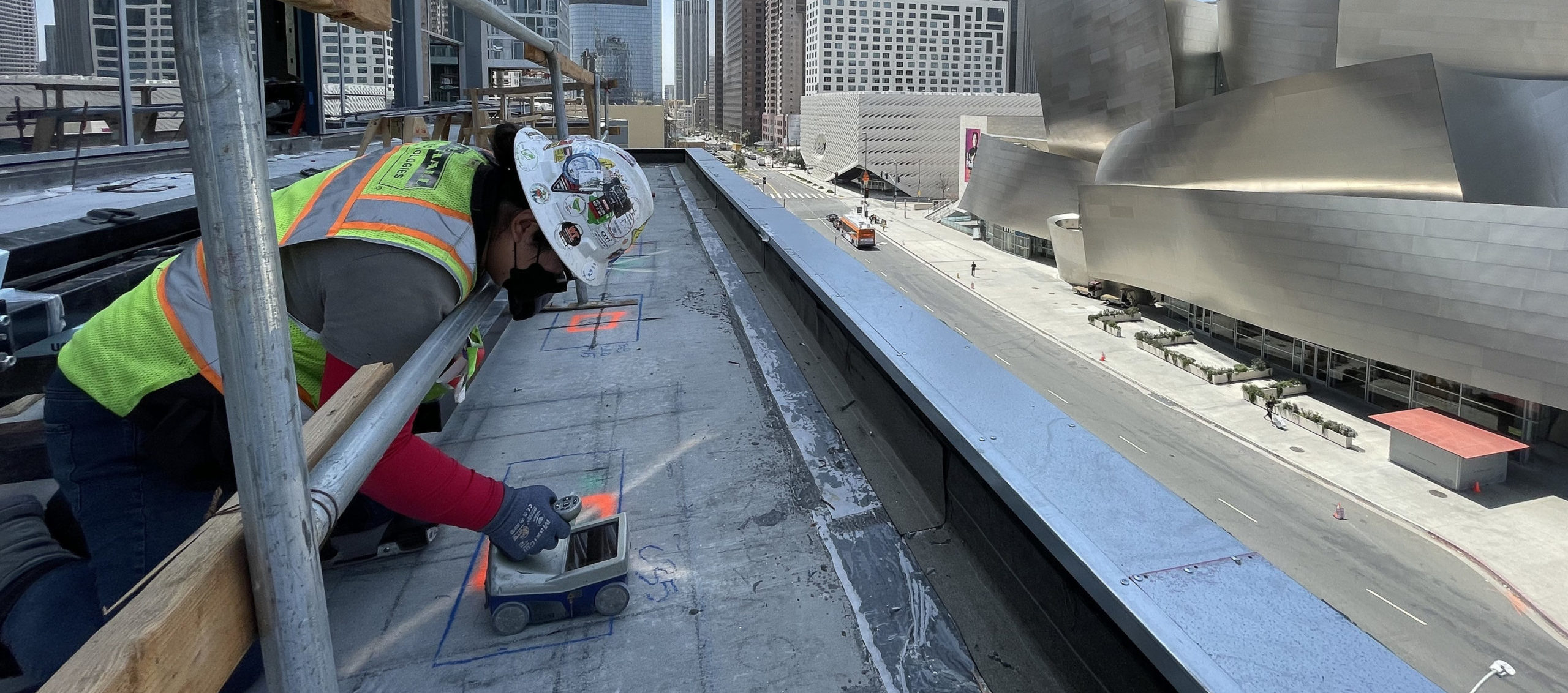Harness the Strategic Edge of Concrete Scanning for Unparalleled Job Success and Quality Guarantee
In the realm of contemporary building and construction and infrastructure development, the utilization of concrete scanning technology has become a crucial device for ensuring project success and preserving high quality criteria. This cutting-edge strategy uses a tactical edge by offering crucial understandings right into the architectural stability of concrete aspects, consequently allowing notified decision-making throughout the job lifecycle. By delving into the depths of concrete compositions and uncovering hidden abnormalities, stakeholders can proactively resolve possible dangers, enhance operations, and optimize source appropriation. Nonetheless, the real power of concrete scanning lies not only in its ability to boost task end results however likewise in its capability to transform standard practices, establishing a brand-new benchmark for accuracy and performance in the building industry.
The Relevance of Concrete Scanning
Concrete scanning is a vital action in building and construction jobs to guarantee the safety and honesty of structures. By utilizing different scanning modern technologies such as Ground Permeating Radar (GPR) and electro-magnetic induction, building groups can non-destructively evaluate the subsurface of concrete structures to determine possible dangers like rebar, avenues, or post-tension cables. This info is important for task specialists, designers, and managers to make educated decisions and prevent expensive errors throughout the building and construction procedure.
One of the primary reasons why concrete scanning is so essential is its ability to avoid accidents and injuries on the building website. Unintentionally cutting via a real-time electrical conduit or destructive post-tension cords can have tragic repercussions, not just in terms of security yet additionally in regards to project delays and financial effects. By carrying out extensive concrete scanning prior to any type of exploration, reducing, or coring activities, building groups can minimize dangers and create a much safer working atmosphere for everyone involved.
In enhancement to security considerations, concrete scanning additionally plays a key role in guaranteeing the long-term longevity and quality of the framework. By finding any problems or abnormalities concealed beneath the surface area, such as gaps or delamination, very early intervention can be carried out to resolve these issues prior to they rise into more substantial problems. Ultimately, purchasing concrete scanning is an aggressive measure that can conserve time, money, and sources in the future, while additionally promoting the greatest criteria of building excellence.
Advanced Modern Technology for Precise Results

Additionally, 3D scanning innovations use a comprehensive view of the subsurface environment by creating in-depth digital designs. These versions provide valuable insights into the architectural honesty of concrete components and help in identifying potential weak points before they escalate right into significant problems. By incorporating these innovative modern technologies into concrete scanning practices, building and construction groups can improve workflows, lower job delays, and ensure the total top quality and success of the task. The precision and efficiency provided by these tools contribute significantly to the project's success by assisting in informed improving and decision-making quality control actions.
Enhancing Job Performance and Timelines

Moreover, concrete scanning makes it possible for teams to recognize prospective risks and structural weaknesses at an early stage, permitting for prompt remediation and stopping crashes that could hinder project timelines. The real-time data offered by scanning devices facilitates informed decision-making, causing smoother control amongst various trades and stakeholders. This enhanced partnership lessens problems, boosts productivity, and eventually increases task delivery.
Additionally, by proactively resolving issues with concrete scanning, construction teams can follow routines a lot more effectively, minimize downtime, and enhance resource allowance. The capacity to discover concealed barriers and validate architectural honesty efficiently adds to general job performance and timelines, ensuring successful outcomes and client fulfillment.
Ensuring Safety and Threat Reduction

Danger reduction methods can be improved via the comprehensive details offered by concrete scanning, making it possible for project groups to make informed decisions that lower the probability of unexpected occurrences. Additionally, by precisely drawing up subsurface conditions, professionals can avoid pricey rework, delays, and damages to existing frameworks, better adding to total project safety and success. Implementing concrete scanning as a routine method not only makes certain a more secure workplace but likewise imparts self-confidence in stakeholders relating to the task's commitment to top quality and danger administration.
Quality Control Through Concrete Scanning
Concrete scanning plays an essential role in promoting quality assurance requirements within building and construction tasks. By utilizing advanced scanning technologies such as Ground Permeating Radar (GPR) and Concrete X-ray, task supervisors and designers can ensure the integrity and quality of concrete structures. With concrete scanning, possible issues, such as voids, fractures, or enhancing bar blockage, can be spotted non-destructively, enabling timely interventions to keep the structural stability of the task.
Quality control with concrete scanning not only helps in the original source recognizing existing issues yet also makes it possible for proactive measures to stop future issues that can compromise the security and long life of the framework. By carrying out extensive scans at essential stages of building and construction, groups can verify the accuracy of structural strategies, confirm the positioning of important components, and deal with any deviations immediately. This proactive strategy reduces rework, reduces expensive delays, and eventually results in the distribution of top notch, sturdy frameworks that meet or surpass sector requirements.
Verdict
To conclude, concrete scanning plays a crucial function in ensuring job success, safety, high quality, and efficiency guarantee. By utilizing advanced modern technology for precise results, construction jobs can be finished with greater precision and within timelines. The critical side supplied by concrete scanning permits aggressive threat mitigation and improves total project administration. Integrating concrete scanning into building and construction procedures is important for accomplishing unmatched success and ensuring quality results - RainierGPR Concrete Scanning.
In the world of modern construction and facilities development, official source the utilization of concrete scanning technology has actually arised as an essential tool for guaranteeing project success and maintaining top quality standards. By incorporating these innovative modern technologies right into concrete scanning techniques, construction groups can improve workflows, decrease project delays, and guarantee the overall top quality and success of the task.Offered the important nature of job effectiveness and timelines in construction monitoring, the focus currently changes towards ensuring safety and security and mitigating dangers within the job setting.Concrete scanning plays a critical function in maintaining quality assurance requirements within building tasks. By making use of advanced scanning technologies such as Ground Permeating Radar (GPR) and Concrete X-ray, project managers and engineers can guarantee the stability and high quality of concrete structures.
Comments on “Unveiling the Power of RainierGPR Concrete Scanning Innovation”